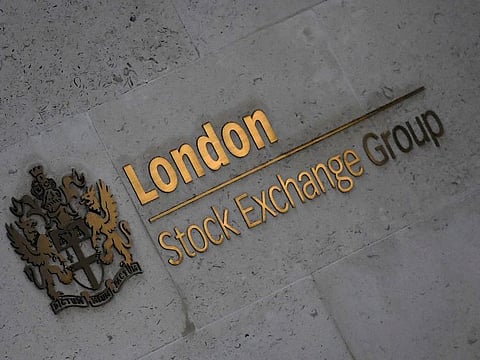UK markets find positives in budget after turmoil
The reaction was a complete calm relative to the fallout after Kwarteng’s Sept 23 speech

There was no crash in the pound, no slump in UK bonds. Chancellor of the Exchequer Jeremy Hunt’s first budget pushed the idea of stability as he drew a final line under the market chaos that followed his predecessor’s fiscal plans.
Hunt announced a mix of tax hikes and spending cuts on Thursday as part of his clean-up operation. That, along with growth and public services, were what he highlighted as priorities at the start of his address in Parliament on Thursday.
The reaction in the currency and bond markets looked like complete calm relative to the fallout after Kwasi Kwarteng’s September 23 fiscal announcement, an unfunded tax-cutting bonanza that spooked investors. Equities rose as many of the measures had been expected, and so priced in. Even energy suppliers such as Centrica Plc and SSE Plc, hit by a windfall tax, rebounded after an initial dip.
“It had to be realistic,” said Sarah Hewin, a senior economist at Standard Chartered Bank. “Markets responded very poorly to what was a completely unrealistic budget just a couple of months ago. One of the primary drivers for today was to ensure markets weren’t upset.”
On what ING analysts said was a “big day” for sterling, the currency fell 1 per cent to $1.18. It’s regained ground since dropping to a record low $1.035 in late September, though its position remains at risk because of the weak outlook for the economy, which is forecast to shrink 1.4 per cent next year.
“The news today is not enough to spark a currency crisis,” Brad Bechtel, an FX strategist at Jefferies LLC, wrote in a note. “But combined with still very high inflation and slowing growth, along with a central bank happily behind the curve, the pound should have a hard time rising above 1.20 for any meaningful period.”
UK government bonds declined even after the nation’s debt office said it plans to sell far less debt than expected this fiscal year. Higher borrowing, along with Bank of England monetary tightening, means the market is still braced for a glut of supply in the coming years. The 10-year yield rose 7 basis points to 3.22 per cent.
But again, the swings were muted compared with the September 23 fallout, when wild moves threatened the very stability of the country’s financial system.
There was some bad news for smaller investors. The dividends allowance will be halved to 1,000 pounds from April, while the annual capital gains tax exemption will be cut by 75 per cent over the next two years to 3,000 pounds.
There was also a new temporary 45 per cent levy on electricity generators. But Centrica Plc rose 4.9 per cent, Drax Group Plc jumped 5.7 per cent and SSE Plc climbed 2.2 per cent.
The government will also raise the windfall tax on the oil & gas sector to 35 per cent from 25 per cent and extend it to 2028. That was a widely expected move, however, and largely priced in. Harbour Energy Plc spiked amid relief that the raid wasn’t tougher.
Hunt delivered the announcement in measured tones, avoiding much of the bombast that often accompanies such events. Back in September, Kwarteng said his plans were about “new era”. Much of his proposals have since been scrapped, and Liz Truss lost her job as prime minister after just 44 days.
For Hunt and new Prime Minister Rishi Sunak, Thursday was about trying to put all that behind them. They weren’t alone.
“Everybody, including those who back lower taxes, just wants to forget about that historically painful Truss-induced financial disaster,” said Ipek Ozkardeskaya, senior analyst at Swissquote.



